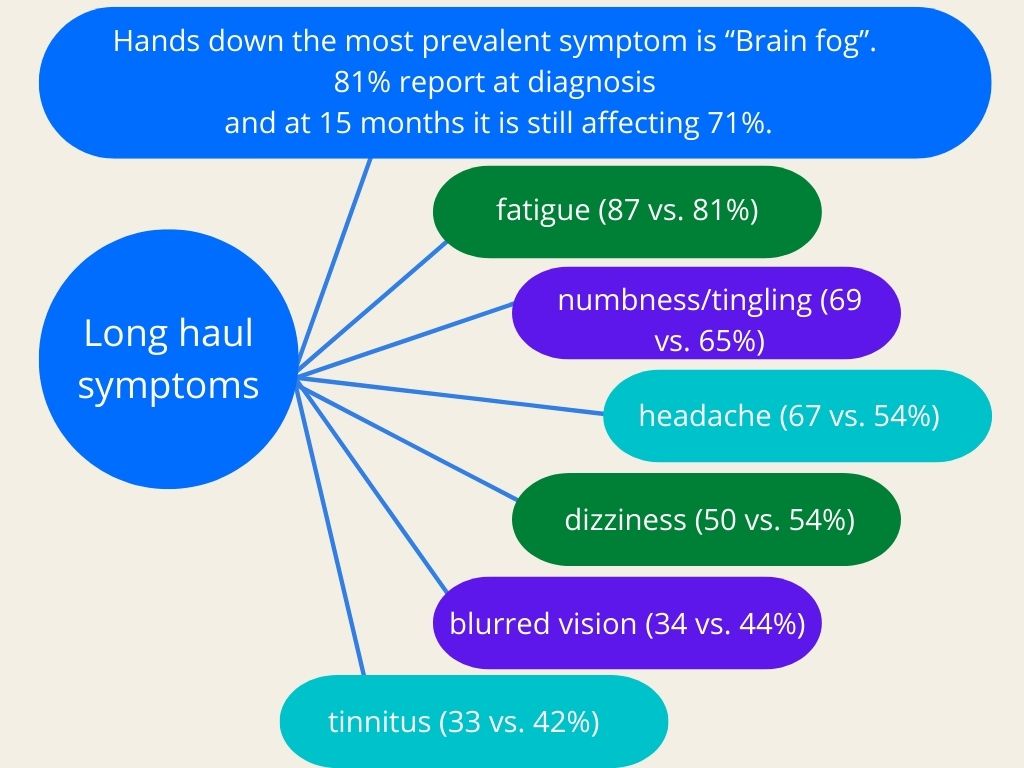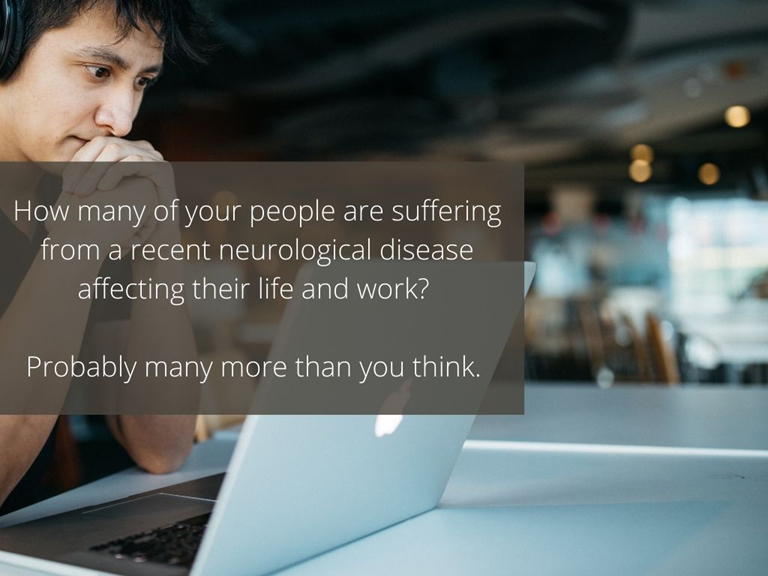Being proactive about the mental well-being of employees remains a front-and-center issue. Evaluating outcomes for Q1 & Q2 while looking at upping your game for the remainder of the year is critical right now.
These numbers you may recognize:
- As of May, 2022 total confirmed cases of Covid-19 in the US – 85,681,615
- The labor force participation rate in the US is 62%
- ∴ 55,693,049 Americans in the workforce have been confirmed with Covid-19 at least once.
Ok, so old news, you are Covid numbered out, I get it…
But did you know this?:
1/3 of those who had Covid are now suffering from Long Covid
As reported last week by expert researchers at the “Congressional Neuroscience Caucus Briefing on The Long-Haul Neurological and Psychological Impacts from COVID-19”. More than 18 million workers are suffering while attempting to do their jobs, most at their pre-Covid levels.
How many of those 18 million work for your organization and work hard to keep their cognitive challenges hidden?
Here is another fact you may not know, I didn’t:
Covid long-term is not dependent on the severity of Covid symptoms during the infection, there seems to be no correlation.
This is directly from Igor Koralnik, MD, Chief of Neuro-infectious Disease & Global Neurology, Feinberg School of Medicine, Northwestern University and also head of the long Covid research. That means those who reported “just flu-like symptoms” are just as likely to be dealing with long-term neurological symptoms.
And what are those symptoms?

Over 15 months the improvement is not significant and some are worse off.
“Acute Covid-19 is predominately a respiratory disease, but Long Covid is a neuropsychiatric illness.
Long COVID affects our societal brain capital, which is the combination of our brain health and our brain skills in the knowledge economy.” This is according to Eric Lenze, MD, Wallace Renard Professor of Psychiatry, Washington University School of Medicine in St. Louis, also leading Long COVID research.
How do we treat those suffering? Unfortunately, there’s very little substantial research done because good research takes time. Treatments for Long COVID-19 are promising, but cures can take a long time and more funding to come to fruition.
So what can you do to help your people dealing with these effects?
- Share the data about Long Covid so employees are not afraid to ask for help. It is much more prevalent than most people believe.
- Because there is no specific treatment, all we can do is give them access to the support they may need. Each is unique, we can put programs and mental well-being resources within easy reach.
- Educate leaders so those dealing with Long Covid can adjust their workday breaks to take care of themselves.
Hopefully, the treatments will prove significant to help your people function at their highest level again and feel like themselves again. But in the meantime, we need to offer umbrella support in every way possible.


Recent Comments